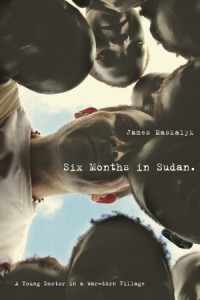Earlier this week, I went to a Go Global Country Session, where you get to mingle with incoming and outgoing exchange students from every country you can think of this week. I experienced a number of things through this event:
1. People appreciate my keen attitude. Someone commented that I was much more outgoing and talkative than a lot of the exchange students who had come back from exchange. I see it this way: if I can’t be open to being social and keen at UBC in my home of Vancouver, how can I ever expect to do that just miraculously when I arrive in Norway? Practice is key!
2. There are really people from all over at UBC. First person I approached was a girl on exchange from Edinburgh, Scotland – who was originally from Germany. Rad. 8)
3. I met an Oslo native! Her name was Jannicke (cannot pronounce it for the life of me) and she was on exchange from the University of Oslo in Norway. She was very helpful in answering all my questions about Norwegian culture, people, and most importantly, how to eat decently in a nation with one of the highest per-capita GDP in the world. She also offered to give me a tour of Oslo when I arrived as she would be back home as well. 😀
4. I met a returned exchange student from Norway! His name was Robbie, and he had actually done a semester in Bergen, Norway (on the other side of the country from where I will be) AND a semester in Australia afterwards. He was super helpful in telling me about how to get cheap airfares, figuring out cell phones, addressing financial concerns, and basically any exchange planning logistics that I was fuzzy on. Plus it was super interesting to hear about his travels in between his studies: he went to Ireland, Russia, Egypt, and to places as far as Japan as well as stopping off in Iceland and exploring Norway. He even admitted he was all over the place. I could tell he really enjoyed his year of adventure though.
5. Ask ask ASK! It never hurts to ask even the silliest (or what you think is a silly) question. Requests to reiterate and explain something further are perfectly fine too compared to the alternative: nodding like you understand so you don’t lose face. : I had to overcome that initial ‘oh, I probably seem really annoying with all of these questions…’ and the ‘oh, I really don’t know anything and they might think my questions are just really stupid…’ It gets easier the more you do it. Besides, chances are there’s another person with the exact same question, who is too afraid to ask it for the same reasons.
6. There’s a girl I know who’s going at the exact same time as me! Her name is Sam, and she just transferred into the same program as me. She’s doing the same field course in Africa with me too. 😀 It’s wonderful knowing that I won’t be so alone, but I am glad that it’s not like 20 other people from UBC going at the same time as me. I would never be able to connect with UMB students if I was being smothered by UBC exchange students.
7. I have free reign of doing whatever I want for school credit from October-December 2012. The field course in Uganda according to a friend is just from August-September. I have a choice to do one of the following afterwards:
a) go back to UMB and take a couple more courses (because I did pay for 15 credits).
b) go back to UBC and do an independent course for the rest of my credits (but that would waste money).
c) complete a research paper or do some field research under the guidance of a UMB prof with possible funding – at this point, I have no idea where this would be (but this is the most appealing option for me – what a once-in-a-lifetime opportunity! :D).
Option C has been the route for many GRS students before me: I know girls who have gone to Tanzania for independent field research, their findings and papers being sent to governments and institutions to advocate for policy changes. There are so many doors of opportunity to choose from with this exchange of mine and I cannot wait to go abroad now more than ever!
All I need to do this keep my open, keen attitude. That is my key.

